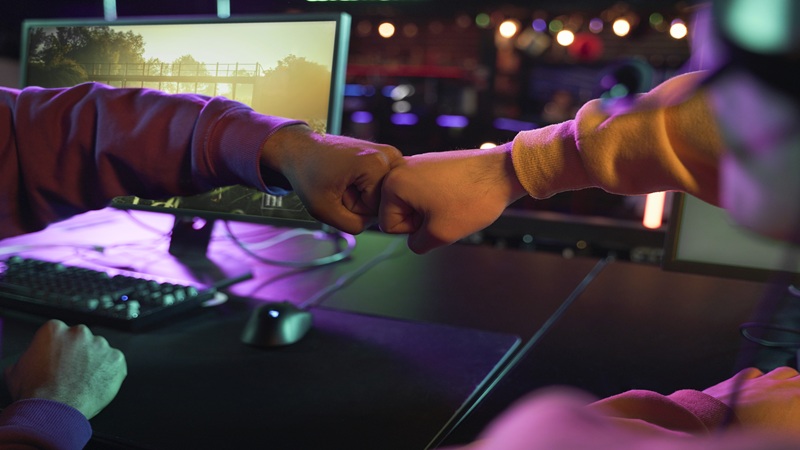The gaming industry has transformed dramatically in recent years, shifting from traditional in-person gatherings to fully immersive digital experiences. At the center of this evolution stands the Undergrowthgameline Hosted Event, a carefully designed online gaming experience that brings players, creators, and gaming enthusiasts together in a structured and engaging environment. As online gaming continues to expand across the United States, UndergrowthGameLine has emerged as a trusted platform for hosting innovative and community-focused gaming events.
The Undergrowthgameline Hosted Event represents more than competition. It is a digital ecosystem built to support interaction, fair play, entertainment, and long-term community growth. By prioritizing quality and accessibility, UndergrowthGameLine has positioned itself as a leader in modern online gaming events.
The Concept Behind the Undergrowthgameline Hosted Event
The foundation of the Undergrowthgameline Hosted Event is rooted in accessibility and inclusivity. Traditional gaming events often require physical attendance, limiting participation for many players. UndergrowthGameLine removes these limitations by offering a fully online experience that allows gamers to participate regardless of location.
This hosted event model ensures that players across the United States can join seamlessly. Whether participants are competitive gamers or casual players, the Undergrowthgameline Hosted Event is designed to provide a welcoming and professional environment for all.
A Structured and Professional Gaming Platform
One of the most defining features of the Undergrowthgameline Hosted Event is its structured format. Every aspect of the event is planned with precision, from registration to gameplay execution. Clear rules, defined schedules, and organized competition formats ensure a smooth experience for participants.
This structured approach helps build trust among players. Gamers know what to expect, which enhances confidence and encourages fair competition. The Undergrowthgameline Hosted Event reflects a commitment to professionalism that resonates strongly with the online gaming community.
Competitive Integrity and Fair Play
Fairness is a core principle of the Undergrowthgameline Hosted Event. Competitive integrity is maintained through transparent rules, consistent moderation, and balanced gameplay systems. Players compete on equal footing, ensuring that skill and strategy determine outcomes.
This dedication to fair play has helped establish the Undergrowthgameline Hosted Event as a credible platform for competitive gaming. Participants can focus on performance without concerns about unfair advantages or inconsistencies.
Community-Driven Engagement
Beyond competition, the Undergrowthgameline Hosted Event emphasizes community interaction. Gaming thrives on connection, and UndergrowthGameLine understands the importance of fostering meaningful relationships among players.
Interactive features, discussion spaces, and engagement opportunities allow participants to connect with one another. This sense of belonging transforms the Undergrowthgameline Hosted Event into more than an isolated event—it becomes an ongoing community experience.
Designed for Both Competitive and Casual Gamers
One of the strengths of the Undergrowthgameline Hosted Event is its inclusivity. While competitive gamers benefit from structured tournaments and rankings, casual players are equally welcomed through friendly matches and interactive activities.
This balanced approach ensures that the Undergrowthgameline Hosted Event appeals to a wide audience. Players can participate at their own comfort level while still enjoying a high-quality gaming environment.
Technology That Supports Seamless Gameplay
Technology plays a vital role in the success of the Undergrowthgameline Hosted Event. The platform is built using modern digital tools that support stable gameplay, smooth communication, and efficient event management.
From optimized matchmaking to reliable performance systems, every technical element is designed to enhance the user experience. This strong technological foundation allows the Undergrowthgameline Hosted Event to deliver consistency and reliability across all hosted events.
Entertainment Value Beyond Gameplay
While competition is central, entertainment remains a key focus of the Undergrowthgameline Event. Live commentary, engaging event formats, and interactive features keep both participants and spectators involved throughout the event.
This entertainment-driven approach ensures that the Undergrowthgameline Event appeals not only to players but also to viewers who enjoy watching skilled gameplay and engaging content.
Supporting Game Creators and Innovation
The Undergrowthgameline Event also serves as a platform for innovation. Game creators and developers can showcase ideas, gameplay mechanics, and concepts in a live environment where feedback is immediate and valuable.
This interaction benefits both creators and players. Developers gain insights that help refine their projects, while gamers feel involved in shaping the future of gaming experiences. The Undergrowthgameline Event strengthens the connection between creativity and community.
Focus on the United States Gaming Audience
The United States represents a major segment of the global gaming community, and the Undergrowthgameline Event is designed with this audience in mind. Flexible scheduling, user-friendly interfaces, and reliable infrastructure ensure that U.S. gamers can participate comfortably.
This targeted approach has contributed to the growing popularity of the Undergrowthgameline Event among American players seeking high-quality online gaming experiences.
Building Long-Term Engagement and Loyalty
Rather than hosting one-time events, UndergrowthGameLine focuses on sustainability and long-term engagement. Each Undergrowthgameline Hosted Event is part of a broader strategy to build anticipation for future events.
Recurring competitions, seasonal formats, and themed events encourage ongoing participation. Over time, players develop a strong connection to the platform, viewing the Undergrowthgameline Event as a trusted destination for online gaming.
Transparency and Trustworthiness
Transparency is essential in any competitive environment. The Undergrowthgameline Event prioritizes clear communication regarding rules, schedules, and participation guidelines.
This openness builds trust and reinforces the platform’s reputation. Players appreciate knowing that the Undergrowthgameline Hosted Event operates with honesty and consistency.
Adaptability in a Rapidly Changing Industry
The gaming industry evolves quickly, and successful platforms must adapt. The Undergrowthgameline Event remains flexible by continuously refining its features and formats based on player feedback and industry trends.
This adaptability ensures that the platform stays relevant and competitive. By embracing innovation, the Undergrowthgameline Hosted Event remains aligned with the expectations of modern gamers.
Skill Development and Growth Opportunities
Beyond entertainment, the Undergrowthgameline Event encourages personal growth. Competitive gameplay helps players improve strategic thinking, teamwork, and decision-making skills.
These opportunities for development make the Undergrowthgameline Event appealing to gamers who seek both enjoyment and improvement within a supportive environment.
The Future of the Undergrowthgameline Hosted Event
As online gaming continues to expand, hosted digital events will play an increasingly important role. The Undergrowthgameline Event represents the future of this space by combining accessibility, professionalism, and community engagement.
With a strong foundation and a clear vision, UndergrowthGameLine is well-positioned to shape the next generation of online gaming events.
Why the Undergrowthgameline Hosted Event Matters
The Undergrowthgameline Event matters because it reflects what modern gamers value most: fairness, connection, and quality experiences. By removing physical barriers and focusing on digital excellence, the platform creates opportunities for gamers across the United States to connect and compete.
It is more than an event—it is a growing digital gaming ecosystem.
Conclusion
The Undergrowthgameline Event stands as a powerful example of how online gaming events can be organized with professionalism and purpose. Through structured competition, strong community engagement, and reliable technology, it delivers meaningful gaming experiences for players and spectators alike.
As the gaming landscape continues to evolve, the Undergrowthgameline Event remains a trusted and forward-thinking platform for modern online gaming.

